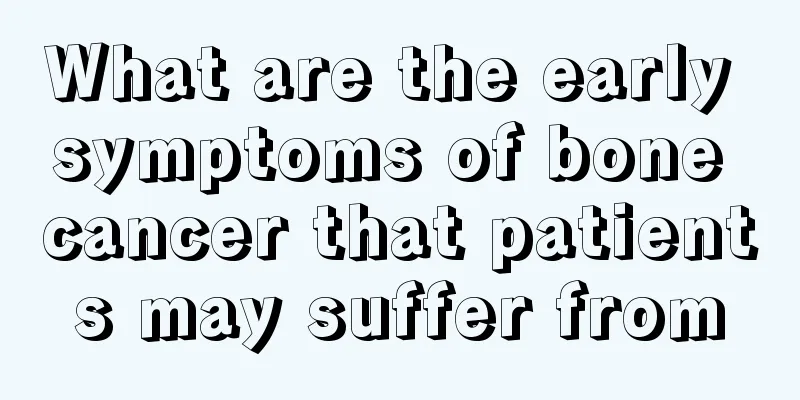Is rectal and buttock pain cancer?

|
Pain in the rectum or buttocks is not necessarily cancer, but if the pain persists for a long time, worsens for unknown reasons, or is accompanied by other symptoms such as rectal bleeding, sudden weight loss, changes in bowel habits, etc., it is recommended to see a doctor as soon as possible for relevant examinations to rule out serious conditions such as cancer. There are many causes of rectal or buttocks pain, the most common of which include benign lesions such as anal fissures, hemorrhoids, and perianal abscesses, which are usually accompanied by local pain, swelling, or difficulty in defecation. If pain and bleeding occur at the same time, it may be caused by hemorrhoids or anal fissures; if there is an obvious lump or persistent local redness and swelling when touched locally, be alert to perianal abscesses or even fistula formation. Inflammatory bowel diseases such as Crohn's disease or ulcerative colitis may also cause pain, accompanied by diarrhea and abdominal pain. Some nerve or muscle problems, such as sciatica and pelvic muscle tension, can also cause discomfort in this area, but these conditions are mostly not cancer. If the pain is accompanied by symptoms such as changes in bowel habits, unexplained anemia, or blood in the stool, you should be particularly alert to the possibility of cancer, especially rectal cancer. There are many causes of rectal or buttocks pain, the most common of which include benign lesions such as anal fissures, hemorrhoids, and perianal abscesses, which are usually accompanied by local pain, swelling, or difficulty in defecation. If pain and bleeding occur at the same time, it may be caused by hemorrhoids or anal fissures; if there is an obvious lump or persistent local redness and swelling when touched locally, be alert to perianal abscesses or even fistula formation. Inflammatory bowel diseases such as Crohn's disease or ulcerative colitis may also cause pain, accompanied by diarrhea and abdominal pain. Some nerve or muscle problems, such as sciatica and pelvic muscle tension, can also cause discomfort in this area, but these conditions are mostly not cancer. If the pain is accompanied by symptoms such as changes in bowel habits, unexplained anemia, or blood in the stool, you should be particularly alert to the possibility of cancer, especially rectal cancer. If the pain affects your daily life, you should seek medical help as soon as possible. You can improve your diet and eat foods rich in dietary fiber, such as whole grains, vegetables and fruits, to promote smooth bowel movements and relieve anal pressure. Pay attention to local hygiene, keep it clean and avoid infection. Temporary relief of pain may be achieved with the help of warm water baths, but be careful not to take medicine on your own or ignore long-term pain. Most importantly, if the pain persists for more than two weeks, the symptoms are significantly aggravated or accompanied by other abnormal signals, a colonoscopy or imaging examination should be performed as soon as possible to ensure timely diagnosis and treatment. |
<<: Can I take Chinese medicine during chemotherapy for rectal cancer?
>>: How long can one live if he can eat in the late stage of esophageal cancer
Recommend
What are the symptoms of cold inflammation and how to treat it
Cold is a common disease in our daily life. Many ...
HPV27 positive: cervical cancer risk and coping strategies
HPV is a common sexually transmitted virus that h...
How should you do the ani-lift exercise?
Many people may have hemorrhoids now. Most people...
Can fibroids be cured?
Although our medical technology has made great pr...
How to prevent teratoma effectively
Teratoma is a disease that originates from germ c...
Where in the office will make people age more easily
The desk faces the window and can enjoy fresh air...
What is the most effective way to remove snake skin?
Summer comes unexpectedly, and many girls have ma...
Can I drink melon slices if I have constipation?
Everyone knows what melon slices are. They are mo...
How to remove chickenpox scars more effectively
The occurrence of chickenpox can be said to be a ...
Can the baby drink water immediately after drinking milk?
We all know that babies generally need to be brea...
Can people with hyperthyroidism eat onions?
Hyperthyroidism is a common disease in clinical p...
How to relieve nervousness, nausea and retching
When people are nervous, many problems will arise...
How to wash a shirt
Shirts are very common clothes for us. This kind ...
What are the dietary taboos for cervical precancerous lesions? Dietary care methods for cervical cancer
Cervical cancer is one of the most common maligna...
How to make refined salt
Salt is the most common condiment in daily life. ...









